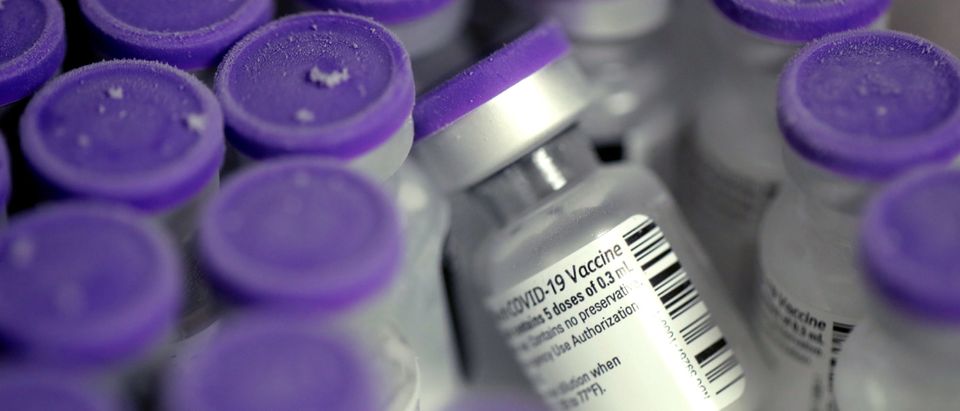Although the Biden administration has waffled on a federal COVID-19 vaccine mandate, state and local governments still have broad power to implement and enforce them.
New York City mayor Bill de Blasio announced a city-wide vaccine passport for admittance to certain businesses on Aug. 3, with residents required to provide proof of vaccination via a smartphone app to access restaurants, gyms and stadiums. Most mandates would likely follow New York’s, although ones issued by employers and universities would only be necessary to provide once.
State and local governments have broad powers to implement public health regulations, particularly during outbreaks, epidemics and pandemics. Furthermore, vaccines and inoculations have been required since the earliest days of the American republic. As head of the Continental Army, George Washington ordered mass inoculations of his troops to combat smallpox. During the 1793 yellow fever epidemic, Philadelphia city government officials ordered quarantines.
The Supreme Court first approved vaccine mandates in the 1905 case Jacobson v. Massachusetts. In response to a smallpox outbreak, Cambridge, Massachusetts, ordered that all residents receive a free vaccine, or be fined $5. The plaintiff in the case, Henning Jacobson, argued that the law violated his 14th Amendment rights preventing Massachusetts from “abridging [his] privileges or immunities.”
However, Justice John Marshall Harlan wrote for a 7-2 court, state public health regulations are part of the police power held by the states. Further, vaccine mandates do not “go so far beyond what was reasonably required for the safety of the public, as to authorize or compel the courts to interfere for the protection of such persons.” Harlan added that since “vaccination, as a means of protecting a community against smallpox, finds strong support in the experience of this and other countries, no court, much less a jury, is justified in disregarding the action of the legislature.”
Since the Supreme Court ruled that vaccination and public health are part of the police power, the federal government may not be able to institute a general mandate. It will, however, require vaccines for federal employees, including military personnel, as well as visitors to the White House. (RELATED: Walensky Says Biden Admin Is ‘Looking Into’ Vaccine Mandate Before Quickly Walking Back Remarks)
The highest-impact mandates may come from private companies, not the government. A Kaiser Family Foundation poll conducted from May 18-25 found that 41% of adults who had not yet made up their mind on vaccination would be more likely to get the shot if it was required to fly on an airplane. The poll also found that 40% of adults who had not yet made up their mind would be more likely to get the shot if it was required to attend sporting events or concerts. The poll of 1,526 adults living in all 5o states had a margin of error of 3%.
Private businesses and employers can require customers and employees to provide proof of vaccination, as long as they comply with the Americans with Disabilities Act (ADA) and the Civil Rights Act of 1964, according to the Equal Employment Opportunity Commission (EEOC). However, the EEOC made clear that “other laws, not in EEOC’s jurisdiction, may place additional restrictions on employers” and their ability to enforce vaccines.
Republican governors have taken different approaches on private vaccine mandates and passports. Florida Gov. Ron DeSantis, Texas Gov. Greg Abbott, and Montana Gov. Greg Gianforte have signed laws or issued executive orders prohibiting private businesses from asking about the vaccine status of employees and customers. In contrast, South Dakota Gov. Kristi Noem issued an executive order prohibiting her state’s government from requiring vaccination but will allow private businesses to do so. (RELATED: Judge Deals Blow To Florida Law Banning Vaccine Passports)
Workers whose employers are mandating a vaccine for continued employment have the power to say no. Our robust economy and job market gives them the option to find a new employer that values personal choice and responsibility, and doesn’t force mandates on their employees.
— Kristi Noem (@KristiNoem) July 31, 2021
In states that do not create vaccine passport systems, employees and customers can provide proof of vaccination via vaccination record cards produced by the CDC. Some states, including Arizona, Louisiana, Maryland, Mississippi, North Dakota, Washington and West Virginia are using third-party apps to store vaccination data, CNN reported.
Americans are nearly split nationwide on COVID-19 vaccine mandates, according to a recent CNBC poll, which found 49% in favor and 46% against. Furthermore, key constituencies within both political parties are vaccine-hesitant. As a result, mandates will likely be left to local government and private businesses, where opinion on the issue is less divided.












